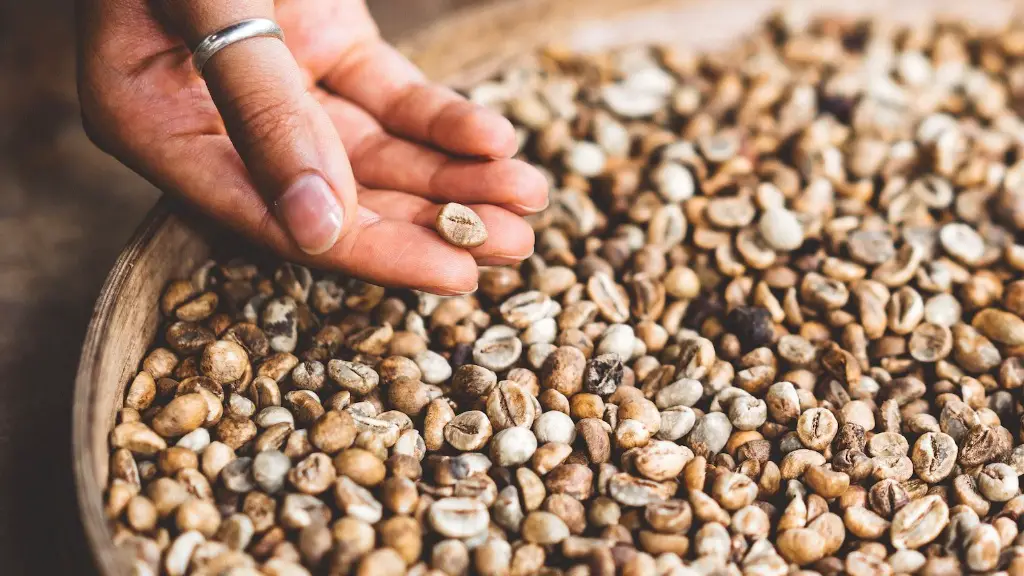Fasting diets are becoming increasingly popular thanks to their promising health benefits. Studies have shown that they can improve weight loss, reduce inflammation, and even reduce the risk of certain diseases. Plus, they can be tailored to meet an individual’s lifestyle, preferences, and goals. But, is coffee allowed when observing a fast? Let’s dive into this question and explore the effects of coffee on fasting.
Background
It’s important to note that there is no single version of the fasting diet, so it’s hard to draw any universal conclusions about whether coffee should be included. The rules for a fasting diet can vary, but typically involve limiting food intake for a period of between 12 hours and a full day at a time. Everyone’s fasting window and diet plan can be a bit different, so be sure to discuss your options with a doctor or nutritionist before beginning any changes to your regular diet.
Benefits Of Coffee
Firstly, coffee is a rich source of antioxidants. This means that it can reduce inflammation in your body, resulting in a number of potential health benefits, such as a decreased risk of type 2 diabetes, cardiovascular disease, and certain types of cancer. It can also help improve your performance when exercising, as well as boosting your energy levels and concentration. Lastly, its potential to reduce hunger makes it a good option if you are trying to reduce your calorie intake. However, keep in mind that it is best to limit your intake to 1-2 cups of coffee per day.
Negative Effects
Like any other food or drink, there are potential downsides to consuming coffee. For instance, it contains caffeine, which is a stimulant that can make it harder to get a restful sleep. It can also increase anxiety levels in some people. Lastly, too much coffee can cause dehydration if you don’t balance it out with other fluids. All of these factors should be taken into consideration when deciding if it’s appropriate to include coffee in your fasting routine.
Experts’ Opinion
Many experts suggest that abstaining from coffee during your fasting window is the best idea. This is because the caffeine found in coffee can be stimulating and can disrupt digestion. Additionally, avoiding coffee may reduce the likelihood of experiencing negative side effects such as insomnia, anxiety, and dehydration that can result from consuming too much caffeine. Furthermore, many dietitians believe that reducing your intake of caffeine can be beneficial, as it helps to reset your body’s insulin sensitivity.
Alternative Drink Options
If you still crave the flavor of coffee when fasting, you could try some alternatives. Herbal teas are naturally caffeine free, and are filled with healthy vitamins and minerals. Other hot drinks such as chamomile tea, honey and lemon water, or miso soup are all great options that contain no caffeine and can help to keep you hydrated. Furthermore, green juices made from vegetables are also a great way to get your daily dose of nutrients without breaking your fast.
Weight Loss
If you are using a fasting diet for weight loss, it’s important to remember that it is not a ‘quick fix’. It should be part of an overall lifestyle and health plan that includes adequate exercise and nutrition. Additionally, it is important to take into consideration that although intermittent fasting can be beneficial in some cases, excessive fasting could place extra strain on the body. Therefore, it’s important to plan your fasts accordingly. Discuss any changes to your diet and lifestyle with your doctor before beginning.
Moderation
Ultimately, being aware of the potential pros and cons of coffee consumption is key to successful fasting. If you decide to include coffee in your fasting diet, ensure you stick to moderation. Limit your intake and ensure you supplement it with other fluids such as water or herbal teas to avoid becoming dehydrated. Furthermore, if you are considering implementing fasting into your lifestyle, be sure to consult with a doctor or nutritionist first.
Caffeine Withdrawal
If you’re used to enjoying coffee regularly, you may experience withdrawal symptoms when omitting it from your diet. This is generally short-term and should pass after a few days. Common withdrawal symptoms include headaches, fatigue, and irritability. The best way to deal with this is to try to slowly reduce your coffee intake over time, rather than going cold-turkey. Additionally, you could try supplementing your coffee with herbal teas, or reducing the amount of caffeine in your coffee.
Adapting To A Fasting Diet
Adapting to changes in your diet can be hard, but the effects are usually worth it in the end. Intermittent fasting has many benefits and can be incorporated into most lifestyles for one day or multiple days of the week. It is important to take into consideration your routine and lifestyle when making any changes to your diet and health plan. Additionally, be sure to seek advice from a medical professional before initiating any major changes to your diet or lifestyle in order to ensure you are receiving the best advice for you.
What Other Foods And Drinks Can Be Consumed?
Alongside coffee, there are a few other beverages that can be consumed while observing a fasting diet. Water is essential, and low-calorie, caffeine-free beverages such as herbal teas and green juices are good options as well. Alternatively, black tea is a popular choice, as it contains fewer calories than coffee. However, it is important to remember that these can still have an effect on your body. For example, many herbal teas can be diuretic, so you may want to reduce or avoid them if you are experiencing dehydration.
What Other Foods Are Allowed During Fasting?
Once again, what type of food and drink is allowed depends on the type of fasting diet you are observing. Many people eat only during an 8-hour window, while others may limit their intake to 12 hours. Generally, low-calorie and healthy foods are encouraged, such as fruits, vegetables, and lean proteins. Additionally, certain supplements such as fish oil and probiotics can be taken during fasting. However, it is important to discuss any changes to your diet or the addition of supplements with a doctor or nutritionist.
What Effect Does Coffee Have On Blood Sugar Levels?
Studies have shown that coffee can reduce blood sugar levels in a healthy way. Furthermore, it may provide a temporary boost to energy levels, and its ability to reduce hunger can help to reduce calorie intake in people following a fasting diet. However, it is important to remember to limit your intake to a moderate level. Additionally, some experts suggest that abstaining from coffee altogether is the most effective way to control blood sugar levels.
Overall Risks and Benefits
To review, the effects of drinking coffee on a fasting diet depend on an individual’s tolerance and preference. While it is high in antioxidants and can provide benefits such as reduced hunger, better performance while exercising, and increased concentration, it could also disrupt digestion, cause insomnia, and make it harder to get restful sleep. Therefore, it is important to be aware of the potential pros and cons and take them into consideration when deciding if it’s appropriate to include coffee in your fasting routine. Additionally, while consulting with a doctor or dietician is always the best option, abstaining from coffee may be beneficial for those who are just starting out on a fasting diet.



